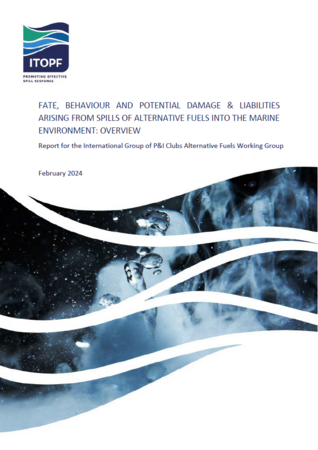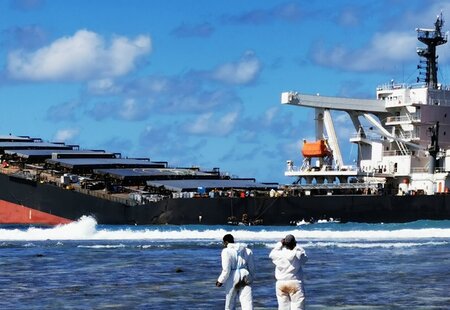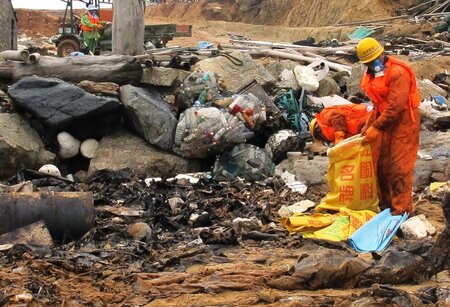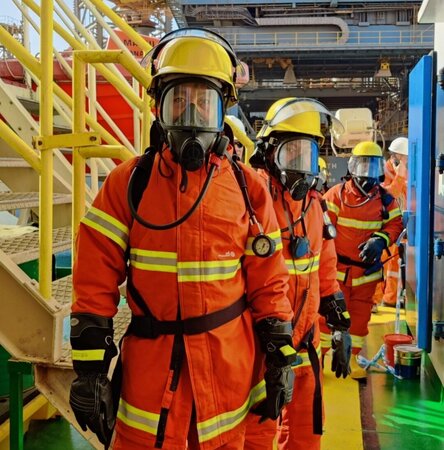Documents & Guides
Explore a variety of topics about marine spills, response and compensation matters in the pages below.
Each topic and area of interest provides access to more detailed documentation that is freely downloadable.
This includes our 18 Technical Information Papers which are fully illustrated with photos and diagrams and are available in several languages.
Alternative Fuels
What are the emerging alternative fuels and their associated risks, hazards, damages and liabilities?
Compensation for Ship-source Marine Oil Spills
What legal arrangements and sources of compensation are available for a spill from a ship?
Disposal
What planning and waste management systems need to be put in place to reduce the volume of oily waste for treatment or disposal?
HNS
What are the specific chemical response strategies for responding to a Hazardous and Noxious Substance spill, and what are the potential effects on human and marine life?
Contingency & Response Planning
What information is needed for an effective oil spill contingency plan? How can aerial observation and protective strategies assist with response operations?
Economic Effects
Which industries might suffer temporary economic losses and loss of market confidence?
Fate of Oil Spills
What happens to oil in the marine environment over time when spilled at sea? How do different factors such as volume and physical and chemical properties affect the fate of oil spills?
Explore the Resources
Fate, Behaviour, Potential Damage & Liabilities Arising from a Spill of Biofuels in the Marine Environment
This report focuses on biofuels as a non-traditional marine fuel. Biofuel is a generic term used to describe fuels produced directly or indirectly from organic material, including vegetable oils, other plant materials and animal waste (but not from fossilised organic material, as with traditional fuel oils). Biofuels are seen as viable ‘transition fuels’ as, although not being zero-carbon, their upstream life cycle emission levels (also know as ‘well to tank’ emissions for fossil-derived fuels) are significantly lower than conventional hydrocarbon fuels because they are typically produced from renewable feedstocks.
Categories: Alternative Fuels, Papers
TIP 01: Aerial observation of marine oil spills
This paper presents advice and guidance on conducting effective aerial reconnaissance.
Categories: Fate of Oil Spills, Response Techniques, Planning & operations, Spill Response, Technical Information Paper (TIPS)
Fate, Behaviour, Potential Damage & Liabilities Arising from a Spill of Ammonia in the Marine Environment
This report takes a look into Ammonia as an alternative shipping fuel. Ammonia is considered to be a promising low- or zero-carbon fuel for the shipping industry, as it is easier to store than LNG or hydrogen and does not have any tank-to-wake emissions, meaning that it does not have any direct CO2 emissions when combusted on-board. However, well-to-tank emissions, upstream CO2 emissions from the production, transportation, transformation and distribution of the fuel to the vessel, vary depending on the source of hydrogen used to synthesise the ammonia.
Categories: Alternative Fuels, Papers
Overview: Fate, Behaviour and Potential Damage & Liabilities Arising from Spills of Alternative Fuels into the Marine Environment
ITOPF, as part of the International Group of P&I Clubs Alternative Fuels Working Group, has been requested to provide a series of brief summary documents to describe the expected fate and behaviours of emerging alternative fuels and to outline the possible damage and liabilities that may arise from incidents involving vessels carrying these fuels as bunkers.
Categories: Alternative Fuels, Papers
International Assistance: Sharing the Load or Muddying the Waters?
Despite a significant decline in major ship-sourced oil spills worldwide, these incidents continue to pose significant challenges for affected countries, impacting livelihoods and coastal ecosystems. Effective spill response is crucial to mitigate environmental and economic impacts, but this can be difficult to achieve during large-scale incidents, particularly where there is limited preparedness. International collaboration and assistance from governments and intergovernmental organisations can be critical to support response efforts, particularly in the early stages.
Categories: Planning & operations, Papers
Understanding culture in the context of emergencies: A step towards a more effective international spill response
Following an incident, the spill response community is subject to intense pressure where uncertainty is prevalent, yet strong work relationships are often expected to be built on an ad- hoc basis amid intense time pressure. Building trust and adaptability are therefore essential to create an environment of open communication and effective cooperation between stakeholders, leading to an effective response.
Categories: Planning & operations, Papers
The Financial Cost of Oil Spills - a review of international cost data and the factors affecting the costs of oil spills from ships
Oil spills pose significant ecological, social, and economic consequences. The response to a spill and the effects of pollution damage can give rise potentially to high costs. The financial risk of an oil spill is consequently of immense interest to policy makers and the organisations involved in funding and providing compensation and in determining risk and liability.
Categories: Economic effects, Papers
A case for incorporating Environmental Social & Governance (ESG) into spill response
Over recent years the shipping industry has begun to discuss issues relating to sustainability, often within the framework of Environmental, Social and Governance (ESG). In the context of ship-source pollution response, there is debate over how ESG can be practically incorporated into this emergency response sector, and concerns that it’s inclusion may lead to increased bureaucracy and higher workloads at moments when time is already at a premium. This paper therefore examines the feasibility and usefulness of monitoring sustainability during maritime pollution response, and provides practical recommendations on how ESG considerations can be tailored to the spill response sector.
Categories: Environmental effects, Economic effects, Planning & operations, Papers
Balancing the plastic see-saw
Globally, plastics are a widespread consumer product and, due to inappropriate disposal and accidental losses, are now found ubiquitously in the marine environment. Recently, however, there has been a growing interest in plastic pellets, or nurdles, following a spate of losses from shipping vessels during transshipment. Over the last five years, ITOPF has been heavily involved in five spills of plastic pellets, including incidents in Sri Lanka, South Africa and Spain.
Alternative fuels: a shift in the response paradigm?
The decarbonisation of shipping has become an increasingly prominent topic, and this is due to growing regulatory pressure, a changing climate of public opinion and investors demanding a faster energy transition as well as the industry’s increased focus on sustainability.










